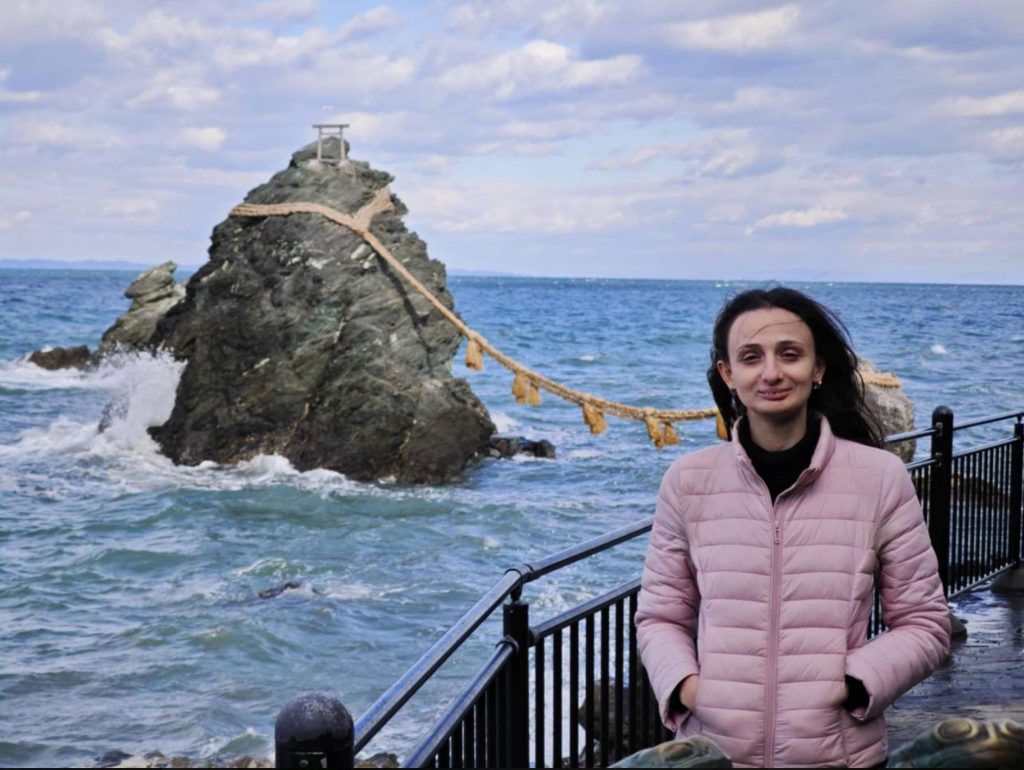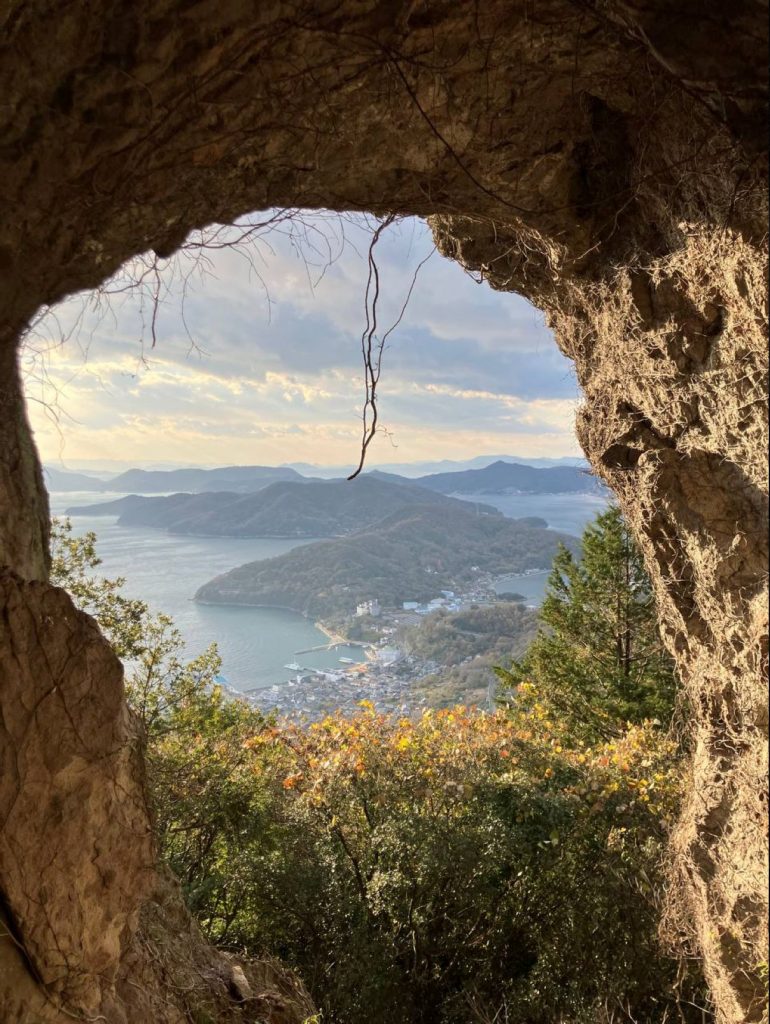Exploring Islam in Japan: A Journey from Ukraine to France and Kyoto

Oleksandra Bibik (PhD, The University of Lille) received a Nichibunken Academic Encouragement Award in 2024, and stayed at Nichibunken from October to December 2024 to conduct research on “Islam in the Context of Japanese Religiosity: A Case Study of the Early Works of Tanaka Ippei.”
How did you get into Japanese Studies?
I did my BA and MA degrees in religious studies at a university in Donetsk, and I studied Japanese language alongside that. At the time in Donetsk, there was a center for Japanese language and culture called “Amaterasu.” The center not only offered language courses, but also hosted cultural events, such as calligraphy and ikebana with specialists in Japanese art. I studied Japanese there for two years and then continued by myself.
After completing my MA, I began a PhD program in the same field. I published all the required articles and submitted my thesis. Unfortunately, war broke out, and I was not able to defend my PhD. It was then that I moved to France, and decided to start another PhD in Japanese studies at The University of Lille.
How is the environment of Japanese Studies in Ukraine and Lille in your experience?
There are centers for Japanese language and culture in many Ukrainian cities. They usually offer courses in Japanese language and art. Universities in most large cities have a faculty of languages where students can study Japanese language and literature. Many graduates go on to work as translators or in Japanese companies. In Kyiv, Borys Hrinchenko Kyiv University and Taras Shevchenko National University of Kyiv are well-known for their Japanese language programs. There are also several researchers like myself, who do not major in Japanese language but study Japanese by themselves and focus on Japan.
In Lille, I have noticed a higher demand for learning Japanese, because of the popularity of animé, manga, food, and fashion. Japanese manga are translated into French very quickly. While there are several places in Lille where you can learn Japanese, I have not come across centers like those in Ukraine. Unfortunately, studying for a PhD in Lille is not common either. In fact, there is only one PhD student other than me in Japanese studies at my university.
How did you get interested in Japan in the first place?
I became interested in Japan when I was six years old, after my mum gave me a book of Japanese folktales. I especially enjoyed the stories of Yuki-onna and Ubazakura. Later, in middle school, I watched Miyazaki’s animations, and studying Japanese became a dream of mine.

Why did you choose Islam in Japan as your research topic?
In 2018, I decided to take part in a study program in Istanbul called “International School for Islamic Studies,” organized with the support of the Istanbul Foundation for Science and Culture. To participate, it was necessary to present research on Islam. Islam was not my topic back then, but since I was studying Japanese, I thought I would explore whether Islam was practiced in Japan. Then I discovered that there was very little research on the history of Islam in the Meiji period, which motivated me to pursue the topic further.
You are currently working on Tanaka Ippei (1882-1934), who was one of the first Japanese Muslims. What do you find most interesting about him?
Tanaka was one of the first to attempt to explain Islam in Japanese at a time when there was no established terminology or methodology for doing so. He tried to make sense of Islam in the framework of Japanese language and culture, which makes his work particularly fascinating. Another side of Tanaka’s legacy is his lifepath, where he tried to embody his ideas by combining into one the different practices of several religions: Islam, Shinto and Buddhism.
Is there a place or a specific person who has inspired you during your academic journey?
Istanbul prompted me to ask the question, “Is there Islam in Japan?” This was the beginning of my academic path. Additionally, being at Nichibunken has inspired me to continue my research.
What do you think you have achieved during your time at Nichibunken?
I was able to access in the Nichibunken library all of Tanaka’s texts, which were not accessible outside Japan. I also had the opportunity to meet members of the Islamic communities in Tokyo, Kyoto, and Osaka, which has given me a deeper understanding of Islam in Japan. Additionally, I gave my first talk in Japanese, which was a great experience.
What are your plans for the future?
I want to complete my PhD, and publish a monograph on Tanaka. After that, I plan to shift to another topic related to religions in Japan. Since my academic background is in religious studies, I would like to explore other religions in Japan too.


